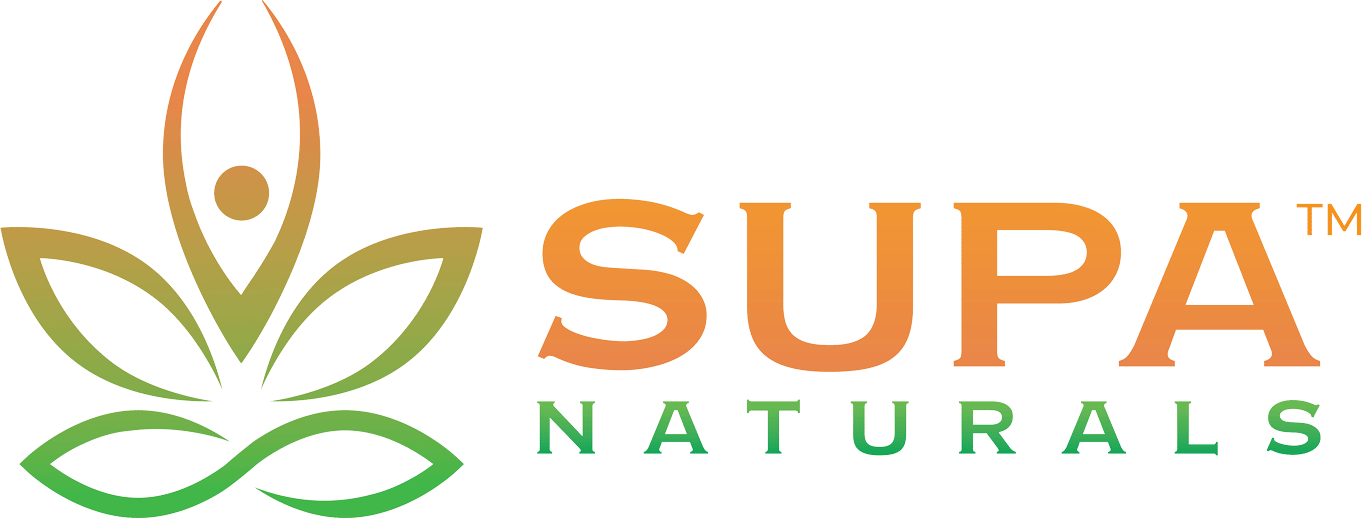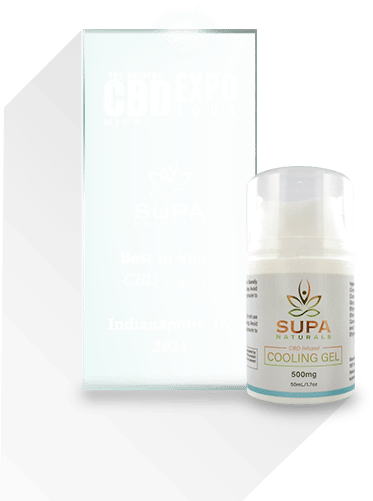Can CBD Lead to Withdrawals?
CBD or cannabidiol is a relatively new alternative therapy popular for treating various health issues, including inflammation, epilepsy, depression, anxiety, and addictions.
However, with the rise in CBD popularity, people can’t stop but wonder about its safety. Is CBD safe to use? Can CBD lead to withdrawals?
To clear the confusion and answer your questions, in this post, we will focus on CBD, its benefits, and how cannabidiol helps with withdrawals.
What is CBD?
CBD comes from the cannabis plant (Cannabis Sativa or Cannabis Indica). It is the second most active component in cannabis and associated with various health benefits without the “high” effect, making it quite appealing to people looking for medical relief without the “stoned” feeling. In other words, CBD helps to neutralize or decrease the effect of THC.
How Does CDB Work on Your Body and Brain?
One of the many reasons why CBD is attractive is because it interacts with our endocannabinoid system. Cannabinoids regulate various psychological processes, such as the immune system, mood, stress, energy level, hunger, metabolism, bone density, and blood pressure. Therefore, our endocannabinoid system needs to operate efficiently without being overactive.
However, in almost every medical condition, the endocannabinoid system is greatly affected. CBD helps to balance and regulate the system by imitating the compound’s effects. As a result, it helps prevent any major breakdown in your body and brain, leading to disruption in your physical and mental functioning.
CBD and The Medical Benefits
When it comes to CBD and the medical perks it has, the list is extensive. Now that you know what CBD is and how it interacts with your endocannabinoid system, it is time to understand how it helps relieve stress, pain, and other effects of specific conditions and diseases.
CBD and Anxiety
CBD has an incredible effect on people suffering from stress and anxiety. According to the latest studies, CBD mimics and impacts our serotonin system, leading to relief from anxiety and making you feel more relaxed.
CBD and Pain
CBD also has impressive effects on people with acute or chronic pain. CBD helps with inflammatory and neuropathic pain and is an excellent alternative to use as a painkiller. It is not as addictive as pharmaceutical painkillers or opioids and may provide more considerable relief to specific issues.
CBD and Insomnia
People who find it challenging to sleep may discover alleviation with the help of this cannabidiol. Although there is not enough medical evidence that proves the correlation between CBD and sleep, there is a common agreement that it does play a role. In addition, a higher CBD dosage leads to prolonged and quality sleep.
It can also help you get rid of the issues or symptoms that keep you awake, for example, stress, anxiety, or pain.
CBD and Cancer
Cannabidiol has shown positive results in preventing some types of cancer, promoting cancer cell destruction, and suppressing cell growth. In fact, for some patients, CBD is more effective than other treatments such as chemotherapy.
CBD and Diabetes
The latest medical studies prove that CBD is helpful in Type 1 diabetes. During this condition, the immune system attacks the pancreas, which may lead to inflammation.
What Is the Right Dose For CBD?
There is no specific answer when it comes to CBD and dosage. Unlike antibiotics or other pharmaceutical drugs, you don’t get a prescription to consume two times a day. People usually determine CBD dosage by the problem they are dealing with and other factors such as consumption method, age, weight, and experience (beginner or active CBD consumer).
For example, a person with diabetes or epilepsy will require a higher dose than someone looking to relieve stress and anxiety. So, if you plan to start, we recommend beginning with a lower dosage and increasing according to your needs and issues.
Ways to Consume CBD

At SUPA Naturals, our mission is to help as many people as possible relieve their symptoms and improve their quality of life by providing high-quality CBD products. We are proud to work with non-GMO and organically grown hemp products to help you obtain CBD benefits without any side effects.
Here are some of the different ways to consume cannabidiol.
CBD Tinctures
CBD tincture is one of the simplest ways to consume cannabidiol. It is a perfect option for people who don’t prefer the vape or smoke options or to wait for 30 to 45 minutes for the edibles to start working.
The idea is to use the dropper to apply the tincture under your tongue for more immediate effects.
CBD Oil
CBD oil is another popular method to consume cannabidiol. It is similar to tinctures, with the only difference being the soaking time. CBD oil is more effective than tincture, although it has a bitter taste and no flavor.
At SUPA Naturals, we offer high-quality full-spectrum CBD oil, perfect for beginners and experienced consumers.
CBD Edibles
For people who want to be more discreet, edibles are your best option. You can add CBD to your favorite dessert or start your day with a CBD-infused tee. From gummies and chocolates to milkshakes, teas, and coffee, the list is endless when it comes to CBD edibles.
At SUPA Naturals, we offer non-GMO, organic, and tested CBD edibles in citrus and strawberry flavor.
CBD Topicals
CBD topicals are popular among athletes who treat sore muscles, pain, stress, or inflammation. Most topical products come in the form of balms, roll-ons, creams, and rubs.
CBD is quickly making its way into the beauty industry with CBD-based creams that help with acne trouble, skin repair, and collagen stimulation.
Smoking
Smoking is one of the oldest ways of consuming cannabidiol. It was and still is the go-to way for those who want to enjoy the CBD benefits due to the feeling of relaxation and relief it provides. Smoking also leads to a faster and long-lasting effect.
Does Quitting CBD Cause Withdrawals?
As you can assume, many people are using CBD to help with their physical and mental health issues. However, they wonder what happens after they stop consuming cannabidiol.
Anti-depressants, painkillers, and other medications may cause withdrawal symptoms after you stop taking them. They modify your brain chemistry and function, and quitting them can cause your body to react. While CBD impacts the endocannabinoid system, it doesn’t have the same after-effect as anti-depressants and painkillers.
Medical experts and researchers have been analyzing cannabidiol, its efficacy, and safety. According to the latest studies, there are specific side effects from consuming CBD, but experts spotted no adverse effects after stopping with consumption. They have discovered that CBD can relieve withdrawal symptoms from other medications.
Cannabidiol can help with withdrawal symptoms from cigarettes, morphine, and heavy THC use. Until now, there is no specific answer to why CBD doesn’t cause withdrawals after you stop consuming it, but it may be because of how different cannabidiol is from anti-depressants, painkillers, and other drugs.
What Happens to Your Body When You Stop CBD Consumption?
Unlike many remedies and pharmaceuticals, cannabidiol doesn’t make you dependent, so it doesn’t pose any abuse risks. According to the World Health Organization, CBD is a safe alternative for many medications, including painkillers.
People also don’t build a tolerance to CBD as you might do with other drugs. Although these differences don’t explain why CBD doesn’t offer withdrawals, it does sum up how different cannabidiol is from other pharmaceuticals.
What might happen once you stop consuming CBD is that symptoms you were trying to cure or relieve may come back. However, unlike opiates and other medications, the resurfacing of your old symptoms (pain, inflammation, or sickness) shouldn’t feel as intense as before.
Effectiveness of CBD For Substance Addiction and Withdrawal

While the analysis and medical research are ongoing, the results collected show that CBD can help people combat substance addiction and withdrawals in a few ways.
CBD For Anxiety Due to Substance Abuse
Stress and anxiety can be a big problem for people struggling with substance addiction. It is one of those never-ending feelings and can significantly impact your quality of life.
For many people, using alcohol or drugs is a way to escape chronic physical or emotional pain, which in the long term can leave significant consequences. Attempting to break the cycle of drug or alcohol addiction with painkillers or anti-depressants can create an even higher level of anxiety.
CBD activates 5-HT1A or a serotonin receptor, which increases serotonin levels. Low levels of serotonin are linked to anxiety and depression and may impact your energy and mood. CBD affects the receptors, increases serotonin levels, and doesn’t provoke any side effects.
One of the most significant impacts CBD has for substance addiction treatment is PTSD or post-traumatic stress disorder. People who struggle with alcohol or drug abuse due to PTSD have found relief in CBD oil, tinctures, and topicals.
CBD For Opioid WIthdrawal
Lots of medical analysis on CBD’s use for withdrawal focuses on opiates such as heroin. While additional tests are necessary, the results experts have collected have shown that CBD reduces anxiety linked to heroin cravings.
Also, most prescribed anti-depressants and painkillers are opiates, and the chances of forming an addiction are high. CBD can help relieve anxiety, stress, and pain without the potential of producing the same side effects.
CBD For Alcohol Addiction
Unfortunately, alcoholism is a common condition in today’s society. Due to the high availability and accessibility of alcohol, more and more people struggle with alcohol addiction.
Alcoholism decreases the level of CB1 receptors, lowers your natural endocannabinoids, and impacts the function of neurotransmitters. CBD stimulates the number of CB1 receptors, helping your body recover and enabling you to return to healthier functioning.
Some studies reveal that CBD may also stop the damage in your brain and liver. Of course, more research is necessary, but these studies are promising in terms of CBD to help people with alcohol addiction.
How to Consume CBD for Substance Addiction and Withdrawal
Whether you are struggling with drug or alcohol addiction, want to reduce anxiety due to painkillers or anti-depressants abuse, or alleviate withdrawal symptoms, cannabidiols may help.
Before you start using CBD oil, tinctures, or edibles for withdrawal symptoms or substance addiction, it is vital to consult with your doctor and discuss your options.
CBD is generally safe, but it may interact with some pharmaceuticals and cause nausea, irritability, and fatigue. If you want to make sure you are not at risk and avoid the common side effects, you’ll want to have all the information before starting with consumption.
There are different ways to consume CBD oil for opioid addiction and withdrawals (we already mentioned some of the most popular ones). What you decide will depend on what’s easy and comfortable for you. With so many different products, you are sure to find one that will work for you and will provide you with symptoms relief.
CBD oils and edibles are easy-to-consume and long-lasting options. They pass through the digestive system, and you may feel the effect after 30-45 minutes. However, you will feel the benefits (decreased stress, anxiety, and pain) for about 5-6 hours.
You can follow the typical CBD oil routine and consume a few drops every morning or every night. CBD oil drops and tinctures are the most straightforward options for beginners because of the dosage control they provide. The effects of tinctures take about 30 minutes to kick in and will last up to 4 hours.
A Final Word
At first, be open to explore the options and test the products. Make sure to monitor how you are feeling physically and mentally before and after CBD consumption. You may have to try a couple of products before you find the right one.
At SUPA Naturals, we offer a vast selection of organically grown CBD products. We create 100% pure products using carbon dioxide extraction to harvest the active cannabinoids. The team packs all of the products in a cGMP-compliant facility, ensuring cleanliness, safety, and potency with each batch.
Don’t forget to check out our extensive list of products and explore our offers or get in touch with the team to obtain more information regarding our brand or CBD in general.






